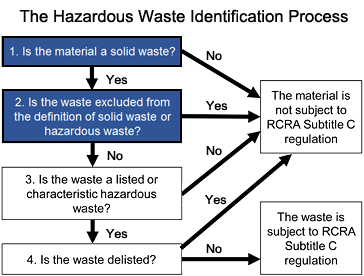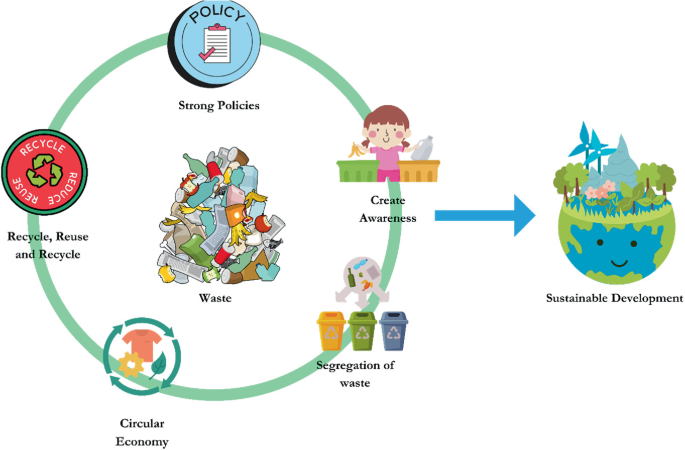Not known Facts About Reclaim Waste
Not known Facts About Reclaim Waste
Blog Article
Reclaim Waste - Questions
Table of ContentsThe Facts About Reclaim Waste UncoveredIndicators on Reclaim Waste You Should KnowLittle Known Facts About Reclaim Waste.The Basic Principles Of Reclaim Waste The Of Reclaim Waste
Explore the kinds, incidents, and forms of fluid waste. Domestic sewage waste refers to the waste and items from a property sewage-disposal tank. This type of waste is produced by humans in residences, schools, and various other buildings. This only consists of septic systems that have a drainpipe field. The proper management and disposal of domestic sewer waste require fluid waste to be transferred to a sewer treatment plant where the correct techniques and tools are related to detoxify and take care of waste.
Commercial waste usually includes potential dangers, such as combustible materials or a mix of liquid and strong waste products, and calls for a more innovative and thorough disposal procedure. The disposal of business waste usually includes the purification of waste prior to transport to ensure safe and appropriate disposal. Industrial waste is produced from results and drainage of commercial processes and production.
This kind of waste can not make use of the exact same sewage management transportation or procedures as septic or business fluids. The commercial waste administration procedure calls for the evaluation and testing of liquid waste prior to it undergoes the disposal process (liquid waste removal melbourne). Overflow waste is the fluid waste that comes from drainage and excess stormwater in very booming locations or cities
Drainage waste can trigger contamination and flooding if not dealt with properly. Ensuring appropriate waste administration can prevent calamities and decrease ecological damage.
Things about Reclaim Waste
Contact PROS Solutions today to learn more about our waste administration and disposal solutions and the appropriate means to take care of the liquid waste you generate.
(https://www.behance.net/leonaube)Do you recognize what occurs to your water when you end, flush the toilet or drain the cleaning maker? No? Well, it deserves understanding. This so-called 'wastewater' is not just an important source however, after therapy, will be launched to our land, rivers or the ocean. Used water from bathrooms, showers, bathrooms, kitchen area sinks, laundries and commercial processes is called wastewater.

water used to cool equipment or clean plant and equipment). Stormwater, a kind of wastewater, is overflow that moves from farming and city areas such as roof coverings, parks, gardens, roadways, courses and gutters into stormwater drains pipes, after rainfall. Stormwater flows unattended directly to local creeks or rivers, ultimately getting to the ocean.
The Main Principles Of Reclaim Waste
In Queensland, a lot of wastewater is dealt with at sewer therapy plants. Wastewater is transported from residential or industrial sites with a system of sewage systems and pump stations, recognized as sewerage reticulation, to a sewer treatment plant. City governments build, maintain and operate most sewer treatment plants. Operators are licensed under the Environmental Defense Act 1994 to discharge treated wastewater at an appropriate ecological criterion into waterways.
The Division of Natural Resources encourages city governments concerning handling, operating and preserving sewage systems and treatment plants. In unsewered locations, neighborhood federal governments might call for homeowners to set up private or home sewer treatment systems to deal with residential wastewater from toilets, cooking areas, bathrooms and washings. The Department of Natural Resources authorizes the use of home systems when they are verified to be efficient.
A lot of stormwater receives no treatment. In some new subdivisions, treatment of some stormwater to remove trash, sand and crushed rock has started making use of gross pollutant catches. Wastewater treatment occurs in 4 phases: Removes solid matter. Larger solids, such as plastics and various other items incorrectly discharged to sewers, are eliminated when wastewater is gone through screens.
Uses tiny living organisms understands as micro-organisms to break down and eliminate remaining liquified wastes and fine look at more info bits. Micro-organisms and wastes are included in the sludge.
Some Ideas on Reclaim Waste You Need To Know
Nutrient removal is not available at all sewer treatment plants since it requires expensive specialized equipment. Clear fluid effluent generated after treatment may still include disease-causing micro-organisms - liquid waste removal.

Many wastewater moves into the sewerage system. Under the Act, neighborhood governments carry out approvals and permits for ecologically pertinent activities (Periods) involving wastewater releases that could have a regional influence.
The Ultimate Guide To Reclaim Waste
Tracking supplies accurate info regarding water high quality and can verify that licence conditions are being satisfied. The info obtained through monitoring offers the basis for making water high quality decisions.
Report this page